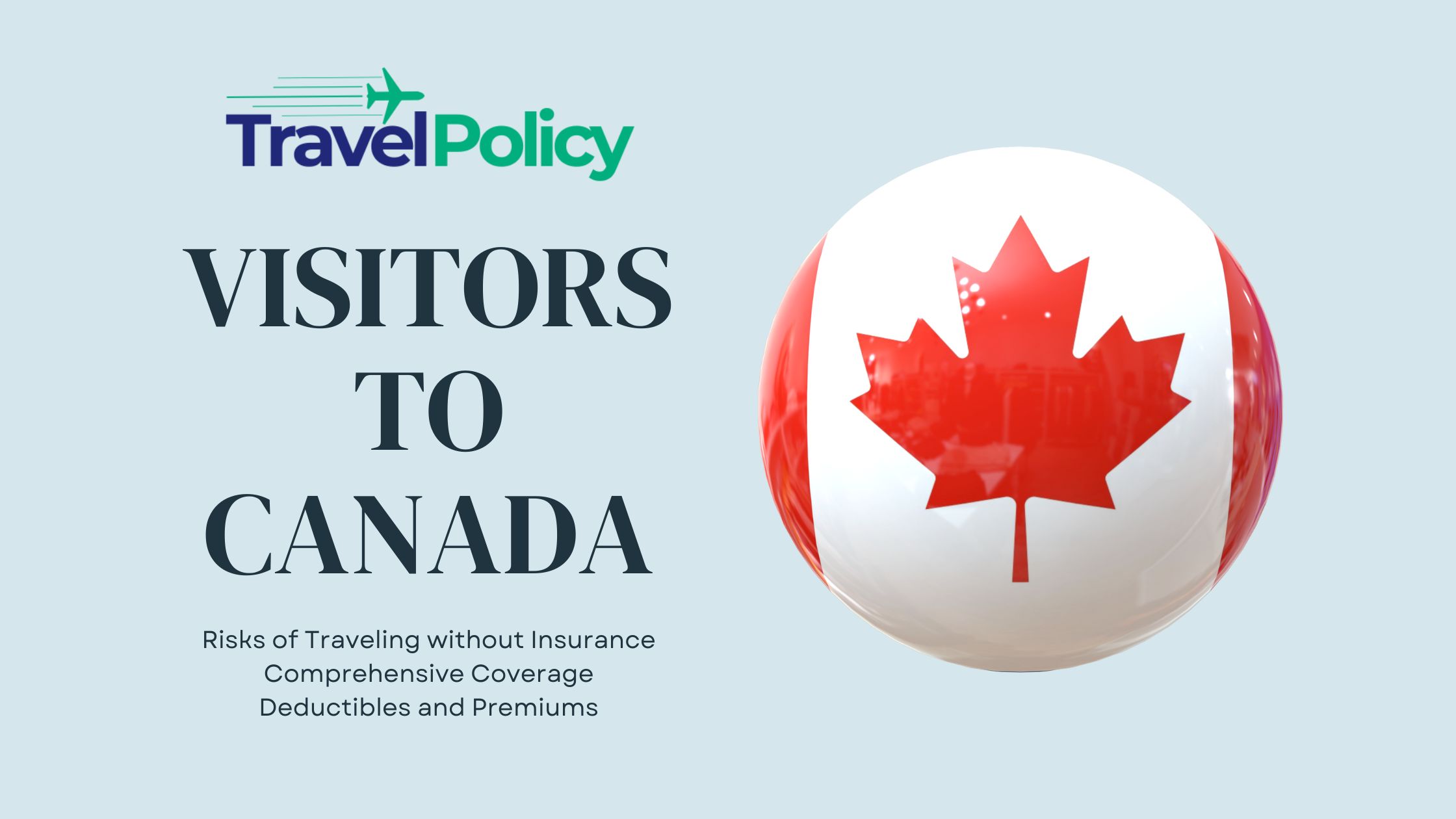
Traveling to Canada? Here’s Why Visitor to Canada Insurance is Essential
Introduction Canada is a vibrant country offering everything from breathtaking natural scenery

Traveling is an exhilarating experience, offering opportunities for adventure, relaxation, and exploration. Whether you’re embarking on a solo backpacking trip, a family vacation, or a business excursion, the thrill of discovering new places is unparalleled. However, amidst the excitement, it’s crucial not to overlook a fundamental aspect of travel planning: insurance. Traveling uninsured can expose you to a myriad of risks
One of the most compelling reasons to invest in travel insurance is to safeguard yourself against unexpected medical expenses. While no one anticipates falling ill or getting injured during their trip, the reality is that accidents can happen anywhere, at any time. Without adequate insurance coverage, medical treatment abroad can lead to exorbitant bills, potentially draining your savings or even forcing you to cut short your trip.
Access to quality healthcare can vary significantly from one destination to another, further underscoring the importance of having comprehensive travel insurance. In the event of a medical emergency, insurance ensures that you receive timely and appropriate care, without having to worry about the financial implications.
For adrenaline junkies and adventure enthusiasts, travel is synonymous with thrilling experiences and outdoor adventures. However, engaging in high-risk activities, such as skydiving, scuba diving, or mountain climbing, carries inherent dangers that may not be covered by standard travel insurance policies.
It’s essential to review your insurance coverage carefully and consider purchasing additional riders or specialized policies to cover adventurous activities. While these may come at an extra cost, they provide invaluable protection against the unique risks associated with extreme sports, ensuring that you can pursue your passions safely and responsibly.
When it comes to travel insurance, there is no one-size-fits-all solution. Instead, travelers have a range of options to choose from, depending on their individual needs, preferences, and budgetary constraints.
Common types of travel insurance policies include:
Before purchasing travel insurance, it’s essential to assess your specific needs and evaluate the level of coverage required for your trip. Factors to consider include the duration of your trip, destination(s), activities planned, pre-existing medical conditions, and any potential risks or contingencies.
While travel insurance provides valuable protection against a wide range of risks, it’s essential to be aware of its limitations and exclusions. Most policies have certain restrictions and conditions that may impact coverage eligibility or reimbursement amounts.
Common exclusions from travel insurance coverage include:
It’s essential to review the terms and conditions of your insurance policy carefully and clarify any doubts or concerns with your insurance provider before embarking on your trip.
Navigating the world of travel insurance can be overwhelming, with numerous providers, policies, and coverage options to choose from. To make an informed decision and ensure adequate protection for your travels, consider the following tips:
By following these tips and taking a proactive approach to purchasing travel insurance, you can enjoy peace of mind knowing that you’re prepared for whatever the journey may bring.
To illustrate the importance of travel insurance, let’s explore a few real-life scenarios where travelers found themselves in challenging situations without adequate coverage:
Case Study 1: Medical Emergency Abroad
Sarah, a solo traveler, fell ill during her trip to Southeast Asia and required emergency medical treatment. Without travel insurance, she faced hefty medical bills and struggled to access quality healthcare in a foreign country.
Case Study 2: Trip Cancellation
John and his family were forced to cancel their dream vacation to Europe due to a family emergency. Despite having booked non-refundable flights and accommodations, they were able to recoup their expenses thanks to trip cancellation insurance.
Case Study 3: Lost Belongings
Emily’s backpack, containing her passport, wallet, and camera, was stolen while she was exploring a bustling market in South America. Fortunately, her travel insurance policy covered the cost of replacing her belongings, allowing her to continue her journey without disruption.
These case studies highlight the real-world implications of traveling uninsured and underscore the importance of having comprehensive insurance coverage for your travels.
While the risks of traveling uninsured are undeniable, the benefits of having travel insurance far outweigh the costs. Here are some compelling reasons to prioritize insurance coverage for your next trip:
When considering whether to purchase travel insurance, many travelers weigh the cost of insurance premiums against the potential expenses they may incur in case of emergencies or unforeseen events. While travel insurance adds to the overall cost of your trip, it’s essential to recognize the value it provides in terms of financial protection and peace of mind.
By comparing the cost of insurance premiums to the potential expenses associated with medical emergencies, trip cancellations, lost belongings, or other mishaps, travelers can make an informed decision about the necessity and affordability of insurance coverage. In many cases, the savings realized from insurance coverage far exceed the cost of premiums, making it a worthwhile investment for safer and more secure travels.
In conclusion, traveling uninsured is a risky proposition that can have serious consequences for your health, safety, and finances. From medical emergencies to trip cancellations and lost belongings, the potential pitfalls of traveling without insurance are numerous and varied. By prioritizing insurance coverage for your travels, you can enjoy peace of mind knowing that you’re prepared for whatever the journey may bring.
Whether you’re planning a weekend getaway or a round-the-world adventure, investing in travel insurance is a smart decision that can protect you against the unexpected and ensure a smoother, more enjoyable travel experience. Don’t leave home without it!
Is travel insurance worth it for short trips?
Yes, travel insurance can be beneficial for short trips as well, providing coverage for unexpected events such as medical emergencies, trip cancellations, or lost belongings.
Does travel insurance cover pre-existing medical conditions?
It depends on the policy and the specific terms and conditions. Some travel insurance policies may exclude coverage for pre-existing medical conditions or impose waiting periods before coverage takes effect.
Can I purchase travel insurance after booking my trip?
Yes, you can typically purchase travel insurance after booking your trip, but it’s recommended to do so as early as possible to ensure coverage for unforeseen events that may occur before your departure.
What should I look for when comparing travel insurance policies?
When comparing travel insurance policies, consider factors such as coverage limits, exclusions, claim procedures, and the reputation of the insurance provider.
Are adventure sports covered by standard travel insurance policies?
Some standard travel insurance policies may exclude coverage for adventure sports or high-risk activities. It’s essential to review your policy carefully and consider purchasing additional coverage if needed.

Introduction Canada is a vibrant country offering everything from breathtaking natural scenery

Introduction to Supervisa Definition and Purpose of the Super Visa The Super

Introduction to Super Visa 🛃 What is a Super Visa? A Super